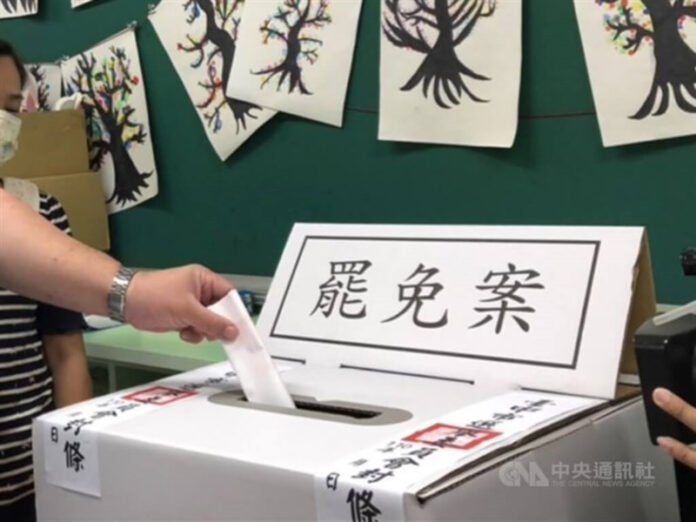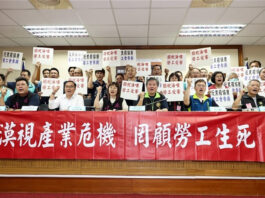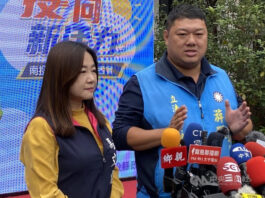Taiwan’s Central Election Commission (CEC) has formally announced a nationwide ban on the publication and distribution of polling data related to recall votes, which will take effect from July 16 to July 26, ten days ahead of a major political test for the Kuomintang (KMT) and suspended Hsinchu Mayor Ann Kao (高虹安).
The recall votes, scheduled for July 26, mark a historic and controversial development in Taiwan’s democratic process. A total of 24 KMT legislators and Kao are facing recall referendums, with another two KMT lawmakers from Nantou set to face votes in August. These votes were initiated largely by civic groups aligned with or supported by the ruling Democratic Progressive Party (DPP) in what many view as a retaliatory campaign after the KMT won a legislative majority in the January 2024 elections.
📉 Polling Ban: Key Details
The CEC has invoked provisions of the Public Officials Election and Recall Act, which prohibit:
- Publication or distribution of polling data related to recall votes during the 10-day blackout period.
- Analysis, commentary, or dissemination of such data by individuals, organizations, media outlets, or political parties.
- Media reporting that includes or references polling numbers during the restricted period.
The intent behind this restriction is to prevent voter manipulation and ensure a fair and transparent environment in the lead-up to the recall votes. This mirrors the “election silence periods” used in other democratic countries, where polling and campaign activity are curtailed just before a vote to avoid last-minute influence.
🎯 Campaign and Advertisement Restrictions
In addition to the polling blackout, the CEC has issued new guidelines regarding campaign advertisements and political activities:
- Public campaign events (like rallies, canvassing) are only permitted between 7 a.m. and 10 p.m.. No campaigning is allowed on voting day.
- Internet and media advertisements are less restricted, though they must be taken down by 12:00 a.m. on July 26.
- All political advertisements must clearly disclose the producer, sponsor, funding source, and related content.
- Only Public Television Service and approved non-profit channels are allowed to provide balanced recall content. Other broadcasters may run ads but must halt all political ads on July 26.
- News outlets are required to give balanced coverage to both sides of the recall campaigns.
🌐 Foreign Influence Strictly Prohibited
The CEC reiterated that campaign funding or influence from foreign entities—especially from China, Hong Kong, or Macau—is strictly banned. This aligns with Taiwan’s national security priorities amid increasing concerns about foreign interference in domestic politics.
🧠 Commentary & Insights
This recall election cycle is unprecedented in modern Taiwanese politics. Critics argue that the DPP-led recall campaign undermines voter intent from the recent general elections, where the KMT secured a legislative majority. They view the recalls as a political weapon, not a democratic corrective measure.
On the other hand, civic activists behind the recalls say they aim to hold legislators accountable for behavior that contradicts public expectations, particularly regarding parliamentary behavior, legislative obstructionism, and alleged disinformation tactics by some lawmakers.
Whether these recall votes succeed or not, they have already reshaped Taiwan’s political narrative by introducing a new level of grassroots activism and political contestation between the two major camps.
❓FAQs
Why is Taiwan banning polling data publication before recall votes?
To prevent misinformation, last-minute voter manipulation, and to ensure a level playing field during the recall campaign period. It follows the election blackout tradition seen in many democracies.
Who is affected by this polling blackout?
Media outlets, pollsters, political parties, influencers, and ordinary individuals are prohibited from publishing, citing, or analyzing recall-related polling data.
Are campaign ads also restricted?
Yes. Public campaigning is banned outside 7 a.m.–10 p.m., and no campaign ads are allowed on voting day, July 26. Online and media-based ads must also follow strict disclosure rules.
Who initiated these recall votes?
Civil society groups with support from the Democratic Progressive Party (DPP), targeting mostly KMT lawmakers elected in January 2024.
Is there foreign interference concern in the recall elections?
Yes. Taiwan strictly prohibits campaign donations or influence from foreign governments or entities, especially from China, Hong Kong, and Macau.



